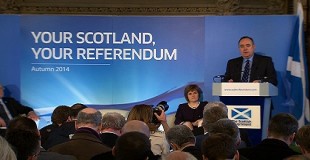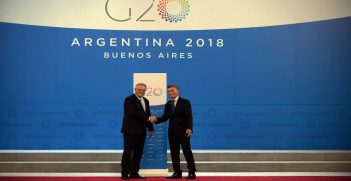How to Engage Effectively With China - Senator the Hon Penny Wong's Keynote Speech at the AIIA National Conference

The choice for Australia is whether we are to be spectators to the competition between the United States and China, or active players.
Australia’s relationship with China is complex and consequential. China is, and will continue to be, of great importance to Australia, to our region and to the world. The key question for Australia is how we best make the relationship work for us.
How do we make it work, knowing that China will always press for what’s best for it, just as we should always press for what’s best for us? How do we make it work, in the context of strategic competition between our friend and ally, the United States, and our important partner, China? How do we make it work, recognising that challenges may intensify and become harder to manage in the future?
Fundamentally, we are in a new phase in the relationship. It is not simply a matter of a “diplomatic reset.” Nor a reversion to the handling of years past. Australians want – and need – to understand this relationship better.
It cannot be brushed aside by this government with a simple “trust us we know what we’re doing.” That approach no longer works in foreign policy […].
The choice is whether we are to be spectators to the competition between the United States and China, or active players.
We will only realise our objectives through a multipolar region.
A multipolar region in which the United States remains deeply and constructively engaged; in which China is a positive contributor; and in which the perspectives and contributions of smaller powers are respected and valued.
Part of this imperative is the increasing assertiveness China has evinced under the leadership of President Xi. We’ve seen this in active engagement in regional and international organisations and in initiatives like the Asian Infrastructure Investment Bank and Belt and Road Initiative. We’ve seen it in the South and East China Seas, the Mekong region and the Indian Ocean; and in Taiwan and Hong Kong. And in the tightening environment inside China: sweeping national security laws, crackdown on civil society and human rights activists, and the mass detention of Uighurs.
In Australia, we see reports of Chinese Communist Party interference and stories of pressure on members of the Chinese-Australian communities and university students.
Having said that all, we should not reflexively and pre-emptively frame China only as a threat. We recognise that China has a right to develop, and a right to a role in the region alongside other regional powers. We recognise that China’s economic development has been to Australia’s advantage, and benefited the global economy. So too the millions of Chinese who have been lifted out of poverty.
But we also recognise that China is not a democracy, nor does the Chinese Communist Party share our commitment to the rule of law. Differences between our systems and values will inevitably affect the nature of our interactions.
And they will, and do, affect the nature of China’s behaviour and ambitions in the region. Behaviour and ambitions which appear to be becoming more difficult to shape.
Although there continues to be convergence of interests, the divergences have become more apparent and acute – due to both Beijing’s increasing assertiveness and greater awareness in Australia as to the implications of the CCP’s behaviour and ambitions.
We must look at how best to engage effectively with China while always standing up for our values, our sovereignty and our democratic system.
Let us not forget that without Labor – and a handful of Coalition backbenchers –Australia would now have an extradition treaty with China. Reflect on that. If the Abbott/Turnbull/Morrison government had got its way, there would now be an extradition treaty with a country whose government does not share our commitment to the rule of law – the very thing that sparked the protests now enveloping Hong Kong.
Australia has a tradition of a largely bipartisan approach to foreign policy.
This does not mean uncritical support for all decisions by the government of the day. Rather, it means having a sensible, calm and mature discussion without seeking to exploit complexities for political advantage. But it also means speaking out where it is in the national interest to do so […] And it is in this vein that I want to comment on Mr Morrison’s handling of the China relationship.
There have been two troubling examples in recent times.
In handling the questions over a member of his class of 2019, Gladys Liu, Scott Morrison came up with the political tactic of saying it was racist to ask for her to account for the inconsistencies in her statements and actions. And he sought to bring all Australians of Chinese heritage into it – apparently speaking on our behalf.
Many commentators – from Peter Hartcher and Greg Sheridan, to China expert John Fitzgerald, to Andrew Bolt – pointed out: in doing so, Mr Morrison had “done Beijing’s work for it”.
As Professor Fitzgerald explains: “The charge that legitimate Australian concerns about Chinese government behaviour are driven entirely by bigotry and racism is one of the talking points of the CCP propaganda bureau.”
He reminds us of occasions – December 2017, March 2018, June 2018 – where the Chinese Embassy responded to government decisions and media reports that were not pro-Beijing with accusations of “racial prejudice” and “racial bigotry”.
Fitzgerald goes on: “Within China itself, party media and establishment intellectuals echo these talking points on racism and bigotry and use the “smear” word to belittle legitimate Australian concerns.” […]
This reckless handling was replicated in the way in Mr Morrison announced he no longer considered China to be a developing country.
Now, there are legitimate questions to be asked about whether China should take on more global responsibilities commensurate with its size and power. And there are legitimate concerns about whether the WTO remains fit for purpose and what reforms are needed to ensure it reflects current economic realities.
But the Prime Minister declaring that China should be considered a newly developed country – while in the United States, after attending a Trump rally – does nothing to further these reforms; the issue of China’s status in the WTO, or any multilateral arrangement, must be dealt with in those organisations and through negotiation with other members.
Worse though, Mr Morrison’s pronouncement was easily construed as Australia just tagging along behind the US Administration’s position. This gave unnecessary fuel to the Chinese government’s narrative that Australia just follows the United States; that when we make decisions that China doesn’t like – on 5G or the South China Sea for example – we do so only because we have been asked to by the US […].
But on any issue this should always be part of a considered and well thought out plan. Not a political tactic. Australians expected Scott Morrison to persuade President Trump to protect our interests in how he deals with the trade war.
The reality is that Scott Morrison’s comments were mostly intended to distract from his failure to achieve anything much of substance with Donald Trump, especially on how he deals with Australia’s interests in the trade war.
And on this point: it is far too early to be confident that the partial deal struck last week will lead to a resolution of the far bigger matters still under dispute – and that they have been resolved in a way that sees Australian interests protected.
It is important now for Scott Morrison to demonstrate that Australian farmers won’t be worse off under the deal struck between the US and China.
Distraction tactics are not enough.
[…]
Senator the Hon Penny Wong is the Shadow Minister of Foreign Affairs and Opposition Leader in the Senate. This is an edited version of her speech to the 2019 AIIA National Conference. The full version is available here.
Minister for International Development and the Pacific Hon Alex Hawke MP also spoke at the conference. His speech will be published on Outlook when it is available.





